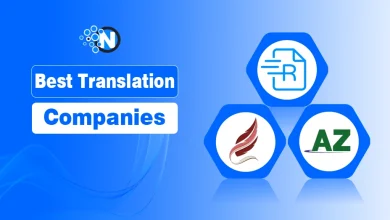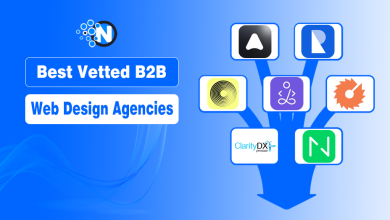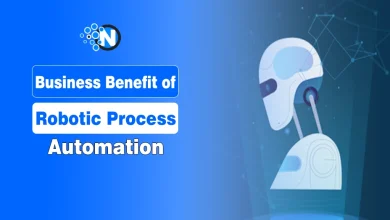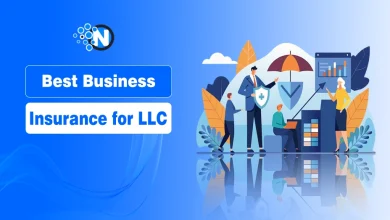How Gradeall Used Video Content to Dominate Tyre Recycling

Global tyre recycling industry is growing at lightning speed. It was valued at £5.83 billion in 2024, and it’s now estimated to expand to £7.71 billion by 2033.
These stats showcase that the trade shows are no more in the game as a Northern Ireland-based company, Gradeall, is winning with digital content.
Gradeall International is a manufacturer of specialised tyre recycling equipment and has transformed into a global force by using digital innovation.
Their approach offers valuable lessons for any B2B company looking to scale through content marketing. This article will discuss their employed approaches and success rates, which may inspire you to do more for your own.
The Digital Transformation Challenge in Heavy Industry
Manufacturing companies face unique challenges when transitioning to digital marketing. Complex products, lengthy sales cycles, and conservative buying committees often make traditional B2B companies hesitant to invest in content creation.
The tyre recycling industry exemplifies these challenges perfectly. Buyers need to understand intricate machinery, see equipment in action, and trust that multi-hundred-thousand-pound investments will deliver ROI.
Gradeall’s equipment addresses the problem; the UK alone generates approximately 50 million waste tyres annually.
Each represents an environmental challenge and a business opportunity. Yet most equipment manufacturers in this space maintain basic websites with PDF brochures and rely on in-person demonstrations.
Gradeall recognised that buyers increasingly research solutions online before ever contacting a sales representative. Industry reports show that B2B buyers complete 57%-70% of their purchase journey before engaging with sales teams.
Video Content as a Game-Changer for Industrial Sales
Gradeall brings the demonstration to them through strategic video content rather than waiting for prospects to visit their facility in Northern Ireland. Their YouTube channel has become a 24/7 virtual showroom that features everything from equipment demonstrations to maintenance tutorials.
Their “Car Tyre Sidewall Cutter” video, for example, has garnered over 3.5K+ views; each representing a potential customer witnessing the machine’s capabilities without travelling to a physical location.
The psychology is simple but powerful: seeing industrial equipment in action builds confidence in a way that specifications sheets never could. What sets Gradeall’s video strategy apart is its variety and purpose-driven approach:
Product Demonstrations: High-quality footage showing machines processing actual tyres, complete with before-and-after shots that highlight volume reduction and efficiency. These videos answer the fundamental question every buyer has: “Will this work for my specific needs?”
Time-Lapse Content: Compelling visual narratives demonstrate capacity and reliability while creating surprisingly engaging content that appeals beyond just immediate buyers.
Maintenance and Training Videos: Gradeall provides value to existing customers while showcasing their commitment to after-sales support by creating how-to guides for equipment maintenance and operation.
Problem-Solution Narratives: Videos addressing specific industry challenges, like handling foam-filled OTR (Off-The-Road) tyres from mining operations, position Gradeall as problem-solvers rather than just equipment vendors.
Building Authority Through Strategic Content Marketing
Gradeall has developed a comprehensive content ecosystem beyond video that establishes them as thought leaders in tyre recycling. Their Complete Guide to Tyre Recycling exemplifies this approach while breaking down complex industrial processes into accessible content.
This approach educates prospects while demonstrating deep expertise. Further, this educational content serves multiple strategic purposes:
- SEO Dominance: By creating in-depth resources around industry-specific keywords, Gradeall captures organic search traffic from buyers researching solutions. They’ve cleverly optimised for both UK (“tyre”) and US (“tire”) spelling variations that expand their global reach.
- Trust Building: Comprehensive guides and technical articles establish credibility before sales conversations begin. When prospects see that a company freely shares valuable knowledge, they’re more likely to trust it with significant investments.
- Sales Enablement: Content becomes a tool for sales teams, who can share relevant articles and videos to address specific customer concerns or use cases throughout the buying journey.
- Lead Generation: Educational content naturally attracts potential customers who are problem-aware but not yet solution-aware, expanding the top of the sales funnel.
The Technology Integration Advantage
What truly sets Gradeall apart is how they’ve integrated digital innovation into their physical products. Their flagship MK2 Tyre Baler isn’t just presented through digital content; it incorporates smart technology that appeals to modern, data-driven operations.
The company has embraced IoT capabilities, enabling remote monitoring and predictive maintenance features. This digital enhancement of physical products creates multiple content opportunities:
- Data-Driven Case Studies: Real performance metrics from equipment in the field provide compelling content that resonates with ROI-focused buyers.
- Interactive Demonstrations: Virtual tours and 360-degree product views allow prospects to explore equipment details impossible to convey through traditional photography.
- Customer Success Stories: Documented efficiency improvements and cost savings from actual implementations become powerful marketing assets.
Measurable Results and Continuous Innovation
Gradeall’s digital-first approach has yielded impressive results. Their strategic focus on video content and SEO has positioned them to compete globally against much larger competitors.
By creating content that serves user intent at every stage of the buyer journey, they’ve built a sustainable competitive advantage in a traditional industry.
The company’s success demonstrates several key principles:
- Consistency Matters: Regular content publication keeps the brand visible and signals active innovation to potential customers.
- Quality Over Quantity: Each piece of content, whether a 30-second equipment clip or a comprehensive guide, maintains professional production values that reflect the quality of their machinery.
- Multi-Channel Distribution: Content is strategically distributed across YouTube, their website, and industry publications, maximising reach and impact.
- Responsive Strategy: By monitoring which content performs best, Gradeall continuously refines its approach while investing more in what resonates with its audience.
Lessons for B2B Manufacturers
Gradeall’s digital transformation offers actionable insights for any industrial company looking to modernise their marketing:
1. Start with Customer Questions: Build content around the actual questions your sales team hears repeatedly. These become the foundation for FAQs, videos, and guides.
2. Show, Don’t Just Tell: Industrial buyers need to see equipment in action. Even smartphone footage of machinery operating can be more valuable than polished marketing copy.
3. Embrace Educational Content: Position your company as a resource, not just a vendor. The more value you provide before the sale, the more likely you are to make the sale.
4. Think Global, Act Local: Digital content allows regional manufacturers to compete globally. Consider international SEO and multiple language variations from the start.
5. Integrate Digital and Physical: Smart features and IoT capabilities aren’t just product enhancements; they’re content goldmines that differentiate your offerings.
The Future of Industrial Marketing
The tyre recycling industry is on track to reach £7.71 billion by 2033. Companies that adopt digital innovation now will secure the biggest share of this growth.
Gradeall proves that even in traditional heavy industries, smart use of video and content marketing can turn a local manufacturer into a global leader.
Environmental laws, new tech, and digital channels are opening huge opportunities. Those who build authority now will own the future.
For B2B firms still unsure about content marketing, Gradeall’s story is proof: in a market where a single sale can be worth hundreds of thousands of pounds, the return on strategic content isn’t just strong; it’s game-changing.




